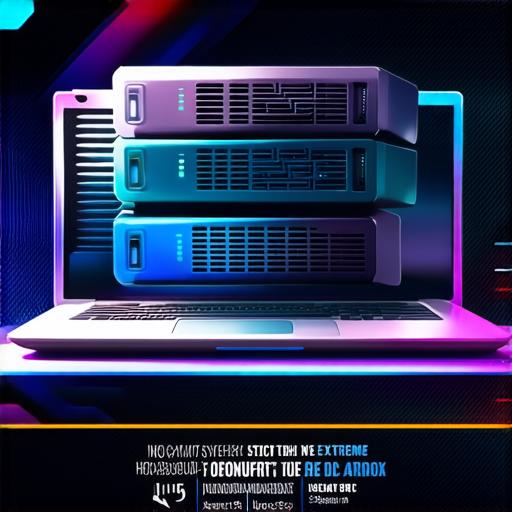Introduction:
In today’s digital age, computers have become an integral part of our daily lives. From work to personal use, computers come in different shapes and sizes to meet various needs. However, with so many options available in the market, it can be overwhelming to choose the right one for your requirements.
Desktop Computers:
Desktop computers are the largest and most powerful type of computer available. They consist of a separate central processing unit (CPU), motherboard, hard drive, power supply, monitor, keyboard, and mouse. Desktops offer more storage space, faster processors, and higher graphics capabilities compared to laptops and tablets. They also have more ports and connectivity options, making them ideal for gamers, video editors, and software developers.
However, desktops are not very portable, as they require a power outlet and a separate monitor, keyboard, and mouse to be operational. They also tend to be more expensive than laptops and tablets due to their larger components.
Case Study: A software developer who requires a powerful computer for coding, debugging, and testing can benefit from a desktop computer. With its fast processor, ample storage space, and high-end graphics card, a desktop can handle demanding tasks with ease. Additionally, the developer can upgrade the computer’s components to meet their changing requirements over time.
Laptops:
Laptops are compact and portable computers that offer most of the features of desktops in a more portable package. They consist of an integrated CPU, motherboard, hard drive, battery, display screen, keyboard, and touchpad or mouse. Laptops can be powered on by connecting to a power outlet or using the built-in battery, making them ideal for working on the go.
However, laptops have limited storage space and processing power compared to desktops. They also tend to be less expensive than desktop computers due to their smaller components.
Case Study: A software developer who needs to work remotely or travel frequently can benefit from a laptop. With its portability and lightweight design, a laptop can be easily carried around without compromising on functionality. Additionally, the developer can use cloud-based services to store their code and data, reducing the need for local storage.

Tablets:
Tablets are mobile devices that offer a touch-screen interface and limited processing power compared to desktops and laptops. They consist of an integrated CPU, operating system, battery, and touch screen display. Tablets are ideal for personal use, such as browsing the web, reading e-books, and playing games.
However, tablets have limited storage space, making them unsuitable for storing large files or running demanding applications. They also have a smaller screen size compared to laptops and desktops, which can be less comfortable to work on for extended periods.
Case Study: A software developer who requires a portable device to check e-mails, attend virtual meetings, and respond to messages while on the go can benefit from a tablet. With its touch-screen interface and lightweight design, a tablet can be easily carried around without compromising on functionality. However, it may not be the best choice for running demanding applications or working on complex projects.
Choosing the Right Computer:
When choosing the right computer, it’s essential to consider your needs, budget, and portability requirements. Desktops offer the most powerful processing capabilities and storage space, making them ideal for gamers, video editors, and software developers. Laptops are more portable and less expensive than desktops but have limited storage space and processing power. Tablets are suitable for personal use but have a smaller screen size and limited storage space compared to laptops and desktops.
FAQs:
Q: Can I upgrade the components of my laptop or desktop computer?
A: Yes, you can upgrade the components of your laptop or desktop computer, such as the CPU, RAM, hard drive, and graphics card, to meet your changing requirements over time.
Q: What is the difference between a laptop and a tablet?
A: Laptops have more processing power, storage space, and ports compared to tablets. They are also larger and less portable due to their built-in components. Tablets, on the other hand, have a touch-screen interface and limited processing power but are more portable and lightweight.
Q: Is it possible to use cloud-based services for storing files and data?
A: Yes, it is possible to use cloud-based services such as Google Drive, Dropbox, and Microsoft OneDrive to store files and data, reducing the need for local storage on your computer.
Conclusion:
In conclusion, understanding the three primary categories of computers – desktops, laptops, and tablets – is essential when choosing the right one for your needs. Desktops offer the most powerful processing capabilities and storage space but are not very portable. Laptops are more portable and less expensive than desktops but have limited storage space and processing power. Tablets are suitable for personal use but have a smaller screen size and limited storage space compared to laptops and desktops. By considering your needs, budget, and portability requirements, you can make an informed decision that meets your specific computing needs.
